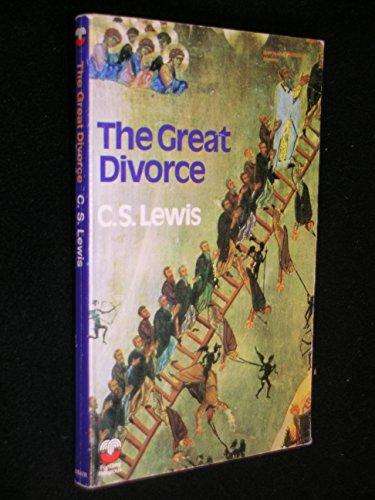
The Great Divorce - C.S. Lewis
Check my rate
| Main centres: | 1-3 business days |
| Regional areas: | 3-4 business days |
| Remote areas: | 3-5 business days |

| Main centres: | 1-3 business days |
| Regional areas: | 3-4 business days |
| Remote areas: | 3-5 business days |
The Great Divorce by C.S. Lewis is a profound and imaginative exploration of heaven, hell, and human choice. First published in 1945, this novella blends fantasy, theology, and philosophical reflection to offer a compelling meditation on the eternal consequences of our moral and spiritual decisions. Despite its brevity, it is one of Lewis's most theologically rich and thought-provoking works.
The story begins with a nameless narrator who finds himself in a dreary, grey townan allegorical depiction of hell or purgatory. He boards a mysterious bus that travels to the outskirts of heaven, where the passengersghost-like figuresare invited to journey further in, but only if they are willing to let go of the sins, habits, and delusions that keep them bound. What follows is a series of dialogues between these ghosts and solid, radiant spirits from heavenfriends or family members urging them to choose joy, repentance, and truth.
Each encounter reveals the subtle and often self-deceptive ways humans resist grace: pride disguised as dignity, lust mistaken for love, intellectual arrogance, bitterness, and even religious hypocrisy. The central theme is clearthere is no compromise between heaven and hell; we must choose one or the other, and that choice is shaped by the daily decisions of our lives. Lewiss message is not that salvation is earned, but that it must be genuinely accepted and cannot coexist with unrepentant self-centeredness.
Stylistically, Lewis combines his characteristic clarity with imaginative depth. The setting is surreal, but the spiritual truths are vividly grounded. Echoing Dantes Divine Comedy, the story is both a journey and a judgmentbut Lewis avoids heavy-handedness, letting the reader engage thoughtfully with the implications.
Theologically, The Great Divorce is consistent with progressive evangelicalism but draws from classical Christian and Reformed themes, especially in its depiction of grace, the will, and the nature of eternity. While not strictly Calvinist, Lewis emphasizes the souls responsibility in accepting or rejecting divine love. His treatment of heaven and hell is allegorical rather than literalistic, focusing on the moral and spiritual realities beneath doctrinal categories.
Lewis assumes complementarian norms in gender portrayals, but the emphasis remains on universal spiritual truths rather than cultural roles.
Ultimately, The Great Divorce is a powerful parable about what it truly means to say Thy will be done. It urges readers to examine their hearts and consider the eternal weight of everyday choices. It's a masterful blend of imagination and theology that continues to challenge and inspire.